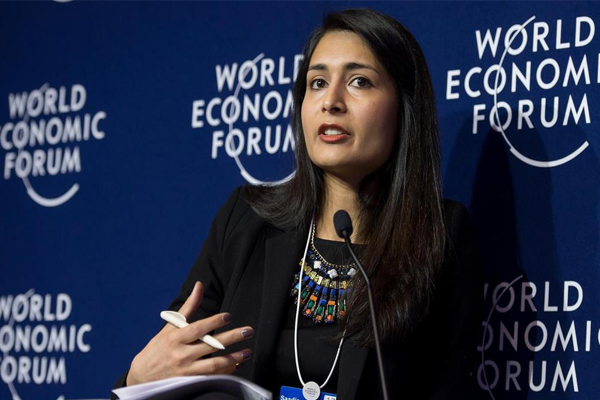As the world recovers from the Covid-19 pandemic, it’s vital to create a fair and inclusive economic recovery for all, according to the World Economic Forum (WEF).
“Economic growth is set to return, but the recovery will be uneven, according to Saadia Zahidi, Managing Director of WEF. “However, we can build something better: an economy that does, in fact, serve everyone.”
With industry experts, WEF has identified the most urgent economic and social challenges, as well as recommendations to help build back on a much broader and more inclusive basis. Its latest White Paper on Building Back Broader outlines the six paths to a fairer economic recovery. They include a new approach to fiscal and monetary policy; shaping a new future of work, wages and job creation; developing, measuring and mainstreaming skills for the new economy; equity and social justice; new markets to drive long-term, inclusive and sustainable economic transformation; and confronting frontier risks.
FISCAL & MONETARY POLICY
While emergency fiscal and monetary interventions in the early stages of the pandemic were considered timely and generous across advanced economies, policy makers are now challenged to rethink the overall system. This includes tax architectures; fiscal spending to increase equality of opportunity; and ways to bridge financing gaps in low- and middle-income countries. Economies should focus on investing in improving the capabilities of their people through education, physical and digital infrastructure and innovation, noted the report.

JOBS & WAGES
The ‘double disruption’ of the pandemic and accelerated automation has destroyed jobs, deepened inequalities and ushered in the future of work. This disruption has created an urgent need to encourage the creation of quality jobs with decent wages and working conditions; especially for youth and other vulnerable groups, according to WEF. “Reskilling and upskilling are central to any efforts to build back broader, expanding opportunity and reversing the labour market polarisation currently underway,” pointed out Zahidi.
The WEF’s Reskilling Revolution initiative aims to provide one billion people with better education, skills and jobs by 2030, working with governments and business globally. Over the last year, its Closing the Skills Gap Accelerators, have supported over 50 million people to reskill away from declining sectors and roles; to growing industries and jobs. WEF noted that for two-thirds of businesses, there is a return on investment within one year. Additionally, companies have discovered it pays off to invest in reskilling rather than to lay off workers and rehire.
However, skilling alone will not be enough. “We need a proactive and structured shift to the ‘jobs of tomorrow’, the roles that will offer the highest opportunity for mass employment; broader benefits to society; higher wages and integration of technology; and human traits in the workforce,” said Zahidi.
Additionally, “decent jobs, especially climate friendly jobs, must be at the heart of recovery, along with rights, social protection, equality and inclusion”, pointed out Sharan Burrow, General Secretary of the International Trade Union Confederation. “These are the foundations of the new social contract which the world needs to build resilience now and for the future.”
EDUCATION & SKILLS
The Covid-19 pandemic has had a dramatic effect on education and skills systems, highlighting existing gaps in learning needs; and has presented new opportunities to reassess priorities on this agenda. There is now an urgency to improve access to the skills to thrive in an increasingly digitised, inter-connected and automated world. “We can’t afford to wait 5, 10 or 20 years when today’s young people enter the labour market to find out that they don’t have the skills needed to thrive. Prioritising ‘Education 4.0’ skills – innovation and creativity; interpersonal and intrapersonal skills; and digital skills is a crucial part of the economic recovery; and investments by government and business to build back broader,” explained Zahidi.

Image credit: Pixabay
The challenges of the global recovery have created a “new impetus to re-imagine the purpose of education”, according to The Lego Foundation’s CEO John Goodwin. “A central pillar of this is designing education systems focused on developing a love of learning and fostering the breadth of skills children need to thrive. Those who love learning are agile, adaptive and flexible. They are energised to learn, re-learn, skill and reskill throughout their lives, which is good for learners, good for society and good for the economy. Changing mindsets and reforming systems is difficult and we need a diversity of perspectives to approach the challenge in new ways. That is why collaboration between public and private sectors has the potential to be transformational in education.”
EQUITY & SOCIAL JUSTICE
WEF and the report authors are calling on businesses and governments to view the post-pandemic recovery through an equity and social justice lens; and to leverage the unprecedented opportunity to build new equitable systems that honour the dignity and equality of every human being. Reforms will need to include legislation to outlaw all forms of discrimination; for businesses to advocate for positive societal reform; and for all decision makers to prioritise the interests of marginalised groups.
“Addressing systemic racial and social discrimination is not a zero-sum game,” commented Alex Liu, Managing Partner and Chairman of the Board at Kearney. “If we create a spirit of allyship, belonging, culture, then we are all empowered. In the face of continuing global uncertainty, it is more critical than ever for business leaders to lead with purpose and remain committed to being the change we want and need on racial and social justice in our communities.”
WEF believes that policy-makers must embed equity into economic reform. “Without such a proactive approach to embedding equity, there is a risk of further polarisation by race, gender, economic status or other forms of difference,” noted Zahidi. “Business also has a crucial role to play in this area, through their workforces, their communities, their products and services and through their advertising and marketing.”
NEW MARKETS
To create a new “green and equitable” economy, governments will need to play a driving role in orienting markets towards a deep transformation. The goal is for industries to develop and mainstream a new set of products, services and business models that provide solutions to the problems that societies face today. To this end, public- and private-sector actors must deliver new partnership models with a focus on shared intellectual property rights; a rebalancing of risks and rewards; and a priority towards sustainability and societal benefit.
For a truly sustainable, inclusive recovery, “we must direct fiscal stimulus towards the markets of tomorrow, that will “convert existing ideas and technology into wide-scale prosperity and environmental and social returns”, advised Zahidi. The WEF has identified more than 20 such new markets, including the mass job-creating markets for skilling and care.

FRONTIER RISKS
As new technologies bring new opportunities, they also create new risks with unknown likelihood and impact, commonly known as ‘frontier risks’. Beyond exploring pathways to better preparedness, it is also important to consider why decision-makers so often fail to prepare for these risks, noted the report. Societies will need to achieve greater resilience, in particular with a view to new risks associated with space exploration geo-engineering, social networks AI and genetic enhancement.
The recommendations areas outlined in the report is the result of discussions amongst six Global Future Councils of experts brought together by the WEF’s Centre for the New Economy and Society. Click here to download the full WEF report.
WEF recently unveiled 112 promising Young Global Leaders committed to improving the world. Click here to read more.







































